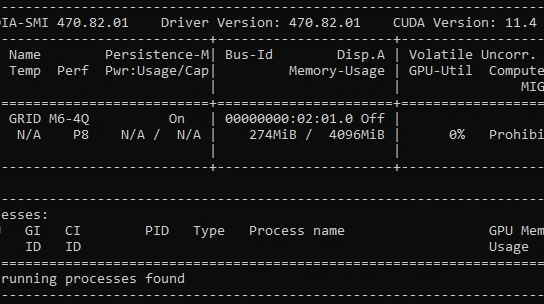Emory Information Technology stands as a pillar of innovation and excellence within Emory University. This comprehensive overview explores the significance, history, and future trajectory of Emory Information Technology, shedding light on how it empowers the university community.

Table of Contents
The Foundation of Emory Information Technology
Emory Information Technology (Emory IT) is the backbone of digital transformation at Emory University. With a mission to enhance teaching, learning, research, and patient care, Emory IT provides robust, secure, and innovative technological solutions. It supports over 30,000 students, faculty, and staff, making it an essential component of the university’s infrastructure.
Historical Context of Emory Information Technology
Emory University’s journey with technology began in the early 1980s when computing resources were limited and primarily used for administrative tasks. As technology evolved, so did Emory’s commitment to leveraging these advancements. By the mid-1990s, the university had established a dedicated IT department to address the growing needs of its academic and administrative sectors.
Key Components of Emory Information Technology
- Network Infrastructure: Emory IT maintains a high-speed, reliable network that spans the entire campus. This infrastructure supports everything from basic internet access to complex research data transfers, ensuring seamless connectivity for all users.
- Cybersecurity: Protecting the university’s digital assets is a top priority. Emory IT employs state-of-the-art cybersecurity measures to safeguard sensitive information and prevent cyber threats.
- Academic Technology: Emory IT offers a range of tools and services designed to enhance the educational experience. From learning management systems to virtual classrooms, these technologies support innovative teaching methods and facilitate remote learning.
- Research Support: Researchers at Emory benefit from specialized IT services, including high-performance computing, data storage, and analytics tools. These resources enable groundbreaking research in fields such as medicine, public health, and the humanities.
- Administrative Systems: Efficient administrative operations are critical to the university’s success. Emory IT provides integrated systems for managing student records, financial transactions, human resources, and more.
Emory Information Technology in the Classroom

Emory Information Technology plays a crucial role in modernizing the classroom experience. Through the use of smart technologies, interactive platforms, and digital resources, Emory IT helps create dynamic and engaging learning environments.
- Learning Management Systems (LMS): Platforms like Canvas and Blackboard are integral to Emory’s educational framework. They enable instructors to manage course materials, communicate with students, and assess academic performance efficiently.
- Virtual Classrooms: The COVID-19 pandemic accelerated the adoption of virtual learning. Emory IT swiftly adapted by providing tools like Zoom and Microsoft Teams, ensuring uninterrupted education during challenging times.
- Digital Libraries: Emory’s libraries are rich with digital resources. Emory IT supports access to extensive online databases, e-books, and journals, empowering students and faculty with valuable academic materials.
Enhancing Research through Emory Information Technology
Research at Emory University thrives with the support of cutting-edge technology. Emory IT offers comprehensive services to facilitate research activities, from data collection to analysis and storage.
- High-Performance Computing (HPC): Researchers tackling complex problems in fields like genomics, climate science, and computational biology rely on HPC resources provided by Emory IT. These powerful computing systems enable the processing of vast datasets and sophisticated simulations.
- Data Management: Proper data management is critical for successful research. Emory IT offers secure storage solutions, data backup, and retrieval services, ensuring researchers have reliable access to their data.
- Collaborative Tools: Emory IT provides tools that foster collaboration among researchers, both within the university and with external partners. Platforms like SharePoint and Google Workspace facilitate seamless information sharing and project management.
Emory Information Technology and Patient Care

Emory University is renowned for its contributions to healthcare, and Emory IT is a vital component of this mission. The integration of advanced technology in patient care enhances the quality and efficiency of medical services.
- Electronic Health Records (EHR): Emory IT supports the implementation and management of EHR systems, which streamline patient information, improve accuracy, and facilitate better clinical decision-making.
- Telemedicine: The rise of telemedicine has revolutionized healthcare delivery. Emory IT enables secure, reliable telehealth services, allowing patients to receive care remotely and conveniently.
- Medical Research: Emory IT collaborates with healthcare professionals to support medical research initiatives. By providing the necessary technological infrastructure, Emory IT helps accelerate discoveries and advancements in medical science.
Future Directions of Emory Information Technology
The future of Emory Information Technology is promising, with several exciting developments on the horizon. Emory IT is committed to staying at the forefront of technological advancements and continuously enhancing its services.
- Artificial Intelligence (AI): Emory IT is exploring the integration of AI in various domains, including education, research, and healthcare. AI has the potential to transform data analysis, personalize learning experiences, and improve patient outcomes.
- Cloud Computing: Emory IT is expanding its use of cloud computing to provide scalable and flexible solutions. Cloud services offer numerous benefits, such as cost savings, enhanced collaboration, and increased storage capacity.
- Internet of Things (IoT): The IoT is set to revolutionize campus life by connecting devices and systems. Emory IT is working on initiatives to implement IoT technologies, which can improve campus security, energy management, and overall operational efficiency.
- Cybersecurity Enhancements: As cyber threats continue to evolve, Emory IT is dedicated to strengthening its cybersecurity measures. This includes advanced threat detection, user awareness training, and robust incident response protocols.
Challenges and Solutions in Emory Information Technology

While Emory Information Technology has achieved significant milestones, it also faces several challenges that require ongoing attention and innovative solutions.
- Scalability: As the university grows, so does the demand for IT resources. Emory IT addresses this by continuously upgrading its infrastructure and exploring new technologies to ensure scalability and efficiency.
- User Training and Support: With rapidly evolving technologies, keeping the university community informed and proficient is a challenge. Emory IT offers comprehensive training programs and 24/7 support to ensure users can effectively utilize available tools and resources.
- Data Privacy: Protecting personal and sensitive data is paramount. Emory IT implements stringent data privacy policies and employs advanced encryption methods to safeguard information.
- Sustainability: Emory IT is committed to environmentally sustainable practices. This includes reducing electronic waste, optimizing energy consumption, and promoting green IT initiatives.
Emory Information Technology: A Community Perspective
The impact of Emory Information Technology extends beyond technical infrastructure; it plays a vital role in fostering a collaborative and innovative community. Here are some perspectives from various stakeholders:
- Students: “Emory IT has significantly enhanced my learning experience. The access to digital resources and virtual classrooms has made education more accessible and engaging.”
- Faculty: “The support from Emory IT has been invaluable for my research. The high-performance computing resources and data management services have enabled me to conduct advanced studies that wouldn’t have been possible otherwise.”
- Healthcare Professionals: “Emory IT’s telemedicine solutions have transformed patient care. We can now provide timely and efficient care to patients, regardless of their location.”
- Administrators: “Emory IT’s integrated systems streamline our administrative processes, allowing us to focus more on strategic initiatives that benefit the entire university community.”
Conclusion
Emory Information Technology is more than just a support function; it is a catalyst for innovation and excellence across Emory University. By providing state-of-the-art technology solutions, Emory IT empowers students, faculty, and staff to achieve their goals and make significant contributions to society.
Emory Information Technology’s unwavering commitment to excellence ensures that Emory University remains at the forefront of education, research, and healthcare. As technology continues to evolve, Emory IT will undoubtedly play a pivotal role in shaping the future of the university and the broader community.
For more information about Emory Information Technology and its services, visit Emory University’s IT Website.
External Links:
- Emory University
- IT Service Catalog | Emory University | Atlanta GA
- Web Resources | Emory University | Atlanta GA
- Office of Information Technology | Emory University | Atlanta GA
- Blackboard at Emory
- Homepage • Emory & Henry
Emory Information Technology stands as a testament to the power of technology in transforming educational institutions. Through its dedication to innovation and excellence, Emory IT continues to propel Emory University to new heights, ensuring that it remains a leader in academia, research, and healthcare.







